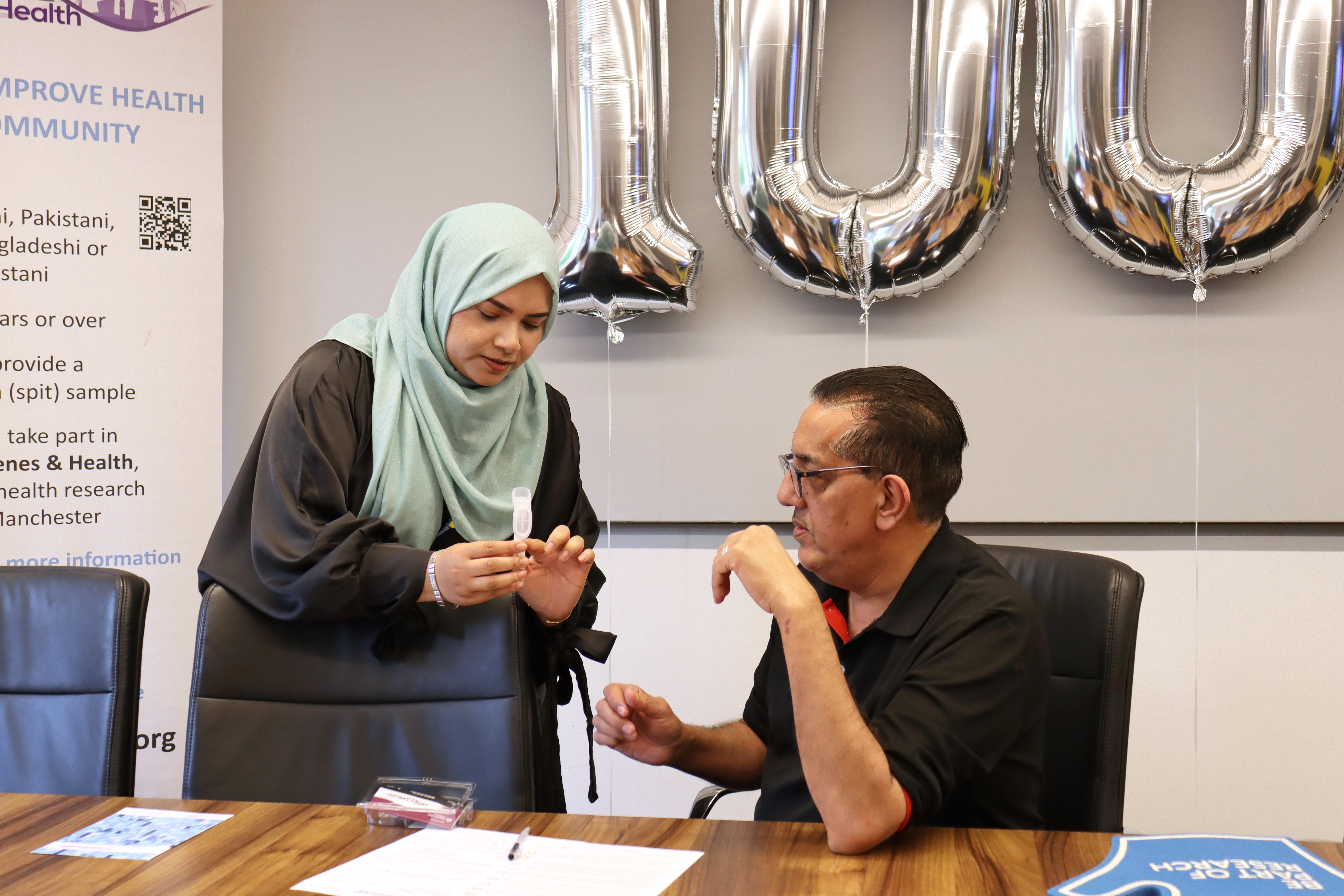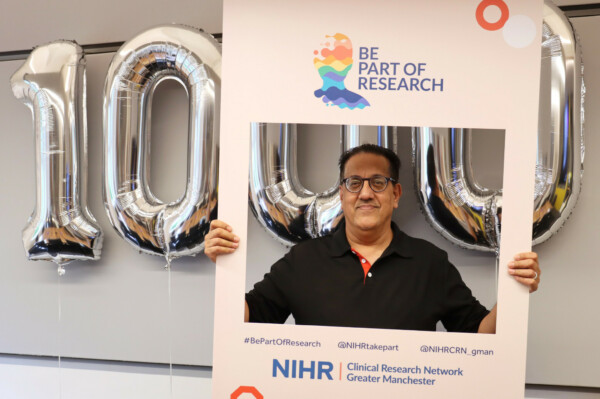University Chancellor urges fellow South Asian citizens to be part of landmark genetics study
University of Manchester Chancellor Nazir Afzal OBE has become the 1,000th person in Greater Manchester to take part in a huge research project seeking to help improve health outcomes for South Asian people.
The Genes and Health Study is trying to understand why people of Bangladeshi and Pakistani heritage have some of the highest rates of heart disease, diabetes and poor health in the UK.
It is one of the world’s largest community-based genetics studies and will analyse the genes and health of 100,000 people in East London, Bradford and Greater Manchester.
The National Institute for Health and Care Research (NIHR) Clinical Research Network Greater Manchester is working in collaboration with the genetics team at Manchester University NHS Foundation Trust (MFT) to give as many people as possible the opportunity to take part.
The study opened in Greater Manchester in 2022 and Nazir, whose parents moved to England from Pakistan, has encouraged others to get involved after he became the 1,000th participant in the region.
The former Chief Crown Prosecutor for North West England joins the 55,500 people who have now taken part in East London, Bradford and Greater Manchester.

Participation is simple and involves providing a small saliva sample and filling in a form with some basic information about your health. The multilingual NIHR and MFT team has visited lots of local community locations, such as mosques, festivals and shopping centres, to provide participation opportunities and make the study as accessible as possible.

Nazir said: “It’s a real honour to be the thousandth person to give my saliva in order for the material to be used to try and identify whether or not there are genetic reasons for my health and ultimately, for the health of others from our communities. We, as a culture, devote our lives to service to others. And this is what it’s about.
This is not about me. This is about hoping that the material that they collect and my health records, will help the next generation and future generations not have to suffer as we've done.
Professor Bill Newman is the Principal Investigator for the study in Greater Manchester and Co-Lead for the Rare Conditions research theme as part of the National Institute for Health and Care Research (NIHR) Manchester Biomedical Research Centre (BRC). He is based at the Manchester Centre for Genomic Medicine at Saint Mary’s Hospital, part of Manchester University NHS Foundation Trust and the University of Manchester.
Professor Newman said: “It has been such a pleasure so far to deliver this study in Greater Manchester and to have the opportunity to speak with so many people in our South Asian neighbourhoods about genetics and the importance of this research.
“Our team has been given a warm welcome by so many groups and communities who have invited us along to countless events and settings, including to mosques, festivals and even sports events. We have been thrilled with the response and would like to thank Nazir for becoming our 1,000th Manchester participant. We’re looking forward to taking the study to more people and contributing further valuable data to this important project.”
Work on this project will also link to the NIHR Manchester BRC’s Rare Conditions theme which is using a diverse range of approaches to drive forward improvements in earlier diagnosis and more personalised treatments for the 3.5 million people in the UK who are affected by one of more than 7,000 rare conditions.
Jo Henry, Delivery Team Matron at NIHR Clinical Research Network Greater Manchester, said: “We know that, unfortunately, South Asian people have some of the highest rates of heart disease and diabetes in Greater Manchester and across the UK, and had the worst COVID-19 outcomes.
“Genes and Health is a study that is making real progress in reducing these health inequalities and providing a very accessible way for people to be part of research that can benefit so many people. We are very grateful to Mr Afzal and we are looking forward to meeting with plenty more local communities to ensure many more people can get involved in this important project.”
People from South Asian communities have historically been underrepresented in the large genetic data sets used by scientists, doctors, and policy makers to guide decisions about healthcare. The Genes and Health Study is addressing this by recruiting volunteers aged 16 and over from British Pakistani and British Bangladeshi heritage.
The project, led by Queen Mary University of London in partnership with King’s College London, started in East London in 2015. Twenty-five scientific publications have already been produced using the Genes and Health data, which has helped in important discoveries such as why COVID-19 affects some people more severely than others, a new treatment for a rare childhood kidney disease, and a new understanding of how nutrition links to childhood growth.
Anyone interested in taking part in the Genes and Health study can contact the Greater Manchester team by emailing project coordinator hanifa.Khatun@mft.nhs.uk. The team would also be delighted to hear from anyone interested in inviting the team to a local event to speak with attendees about taking part in the study.